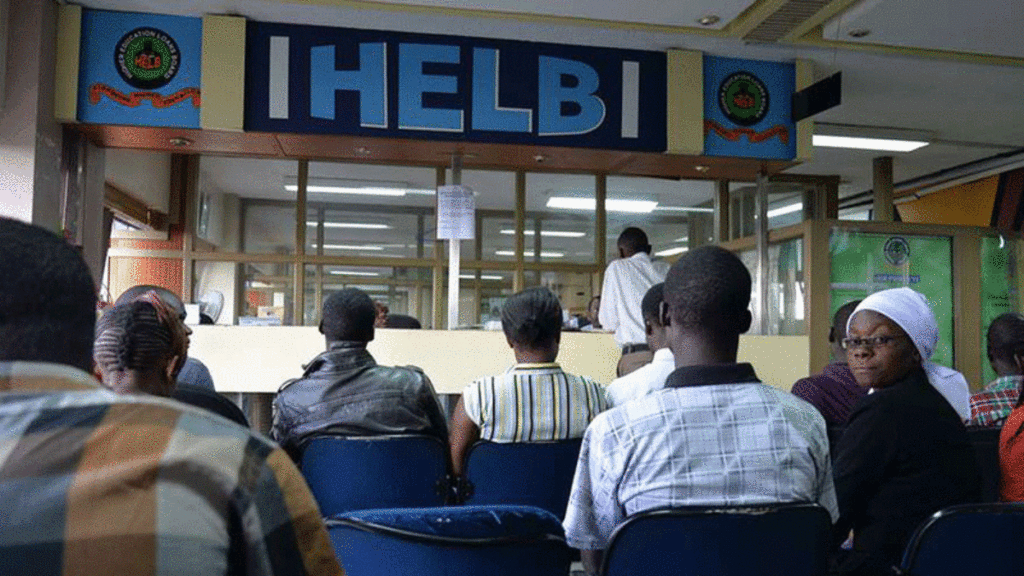News
HELB Officially Runs Out of Funds for Student Loans, Seeks KRA Access to Trace Defaulters

NAIROBI, Kenya – The Higher Education Loans Board (HELB) has officially confirmed what education stakeholders have long feared: the agency lacks sufficient funds to issue new student loans for the 2025 academic year, potentially locking out thousands of students from accessing higher education.
In a stark revelation that has sent shockwaves through Kenya’s education sector, HELB Chief Executive Officer Geoffrey Monari disclosed that the board is facing an unprecedented financial crisis that threatens to derail the dreams of approximately 450,000 students seeking higher education financing.
Despite requiring Ksh.48 billion in the last financial year, HELB received only Ksh.26 billion from the Treasury – a shortfall of Ksh.22 billion that has already forced over 100,000 students to go without full support.
The funding gap has created a domino effect across the education sector, with universities and Technical and Vocational Education and Training (TVET) institutions struggling to maintain operations.
“We paid upkeep for some students, but not tuition fees. The second semester situation is even worse – we haven’t paid tuition fees at all,” Monari explained during a recent parliamentary session.
The crisis has forced HELB to make difficult choices, prioritizing student upkeep allowances over tuition payments to prevent widespread student unrest.
However, this strategy has merely shifted the burden to educational institutions, which are now grappling with severe cash flow problems.
The ripple effects of HELB’s financial constraints are now being felt across Kenya’s higher education landscape.
Universities and TVET colleges, which rely heavily on government funding channeled through HELB, are reporting severe financial difficulties that threaten their operational sustainability.
“Universities and TVETs are bleeding. We avoided student protests by prioritizing upkeep, but the money is simply not enough,” Monari stated, painting a picture of an education system under severe strain.
The situation has become so dire that some institutions are struggling to pay staff salaries and maintain basic infrastructure, raising questions about the quality of education being delivered to students who have managed to secure partial funding.
While HELB struggles to fund new students, the agency is simultaneously grappling with a massive debt recovery challenge.
Some 310,942 former students who benefited from funding have defaulted on loan repayments totalling Sh35.14 billion, according to recent parliamentary disclosures.
The scale of the defaulter problem has prompted HELB to seek unprecedented powers to track down loan defaulters.
The board now wants access to Kenya Revenue Authority (KRA) and National Transport and Safety Authority (NTSA) databases to identify graduates who have secured employment or purchased assets but continue to dodge loan repayments.
“We’re working with KRA and NTSA. Some defaulters have bought cars but won’t repay their HELB loans – that has to stop,” Monari emphasized, highlighting the frustration of seeing loan beneficiaries living comfortably while the system struggles to fund new students.
In response to the crisis, HELB is implementing aggressive recovery measures, including seeking powers to freeze 300,000 bank accounts and embedding loan compliance checks into government procurement systems and professional licensing processes.
Under proposed new regulations, defaulters may be barred from securing public contracts or renewing professional licenses unless they meet their loan obligations.
The board has also revealed that it wrote off Sh347 million after tracing 2,605 dead loan defaulters in 2024/25, highlighting the extent of the tracking challenges the agency faces.
For graduates living abroad, HELB is exploring collaboration with Kenyan embassies to improve debt recovery, though enforcement remains challenging in international jurisdictions.
To address the structural funding challenges, HELB is proposing several innovative solutions, including a 3% education levy drawn from Value Added Tax (VAT) similar to Ghana’s successful model, which allocates 2.5% of VAT revenue to higher education funding.
“We’re proposing a 3% VAT allocation to fund higher education – just like Ghana does with 2.5%,” Monari explained, suggesting that sustainable funding requires moving beyond annual budget allocations to more predictable revenue streams.
Additionally, the board is considering introducing a voluntary savings scheme for parents, managed by HELB, to ease pressure on government loans and build a culture of long-term investment in education.
Education Committee Chairperson Julius Melly expressed support for this approach, stating: “Parents can save, earn dividends – and even borrow from it. It’s like any other investment fund.”
With the September 2025 intake fast approaching, HELB’s warnings are becoming increasingly urgent.
Unless new funding sources are secured rapidly, thousands of students may be locked out of higher education, potentially creating a generation of young Kenyans unable to access university or TVET education.
The crisis comes at a particularly challenging time for Kenya’s education sector, which is already grappling with the implementation of the new Student Centered Funding Model (SCFM) introduced in May 2023.
This model was designed to address funding challenges in public universities and TVET colleges, but its success depends heavily on adequate resource allocation.
Kenya Insights allows guest blogging, if you want to be published on Kenya’s most authoritative and accurate blog, have an expose, news TIPS, story angles, human interest stories, drop us an email on [email protected] or via Telegram
-

 Investigations2 weeks ago
Investigations2 weeks agoInside Nairobi Firm Used To Launder Millions From Minnesota Sh39 Billion Fraud
-

 News2 weeks ago
News2 weeks agoUnfit for Office: The Damning Case Against NCA Boss Maurice Akech as Bodies Pile Up
-

 News2 weeks ago
News2 weeks agoDeath Traps: Nairobi Sitting on a Time Bomb as 85 Per Cent of Buildings Risk Collapse
-

 News2 weeks ago
News2 weeks agoRaila Bodyguard Maurice Ogeta Appointed As Mombasa Security County Adviser
-

 Investigations6 days ago
Investigations6 days agoKERRA Homa Bay Region Manager Calvince Thomas Accused of Swindling Businessman Ksh 2 Million in Phantom Tender Deal
-

 News2 weeks ago
News2 weeks agoMiguna Announces 2027 Presidential Bid
-

 Business6 days ago
Business6 days agoTreasury’s Sh40 Billion Safaricom Gamble Could Cost Kenya Trillions, Auditor Warns
-

 Business3 days ago
Business3 days agoKRA Boss Humphrey Watanga In Big Trouble In Sh5.5 Billion Rice Import Scandal


















